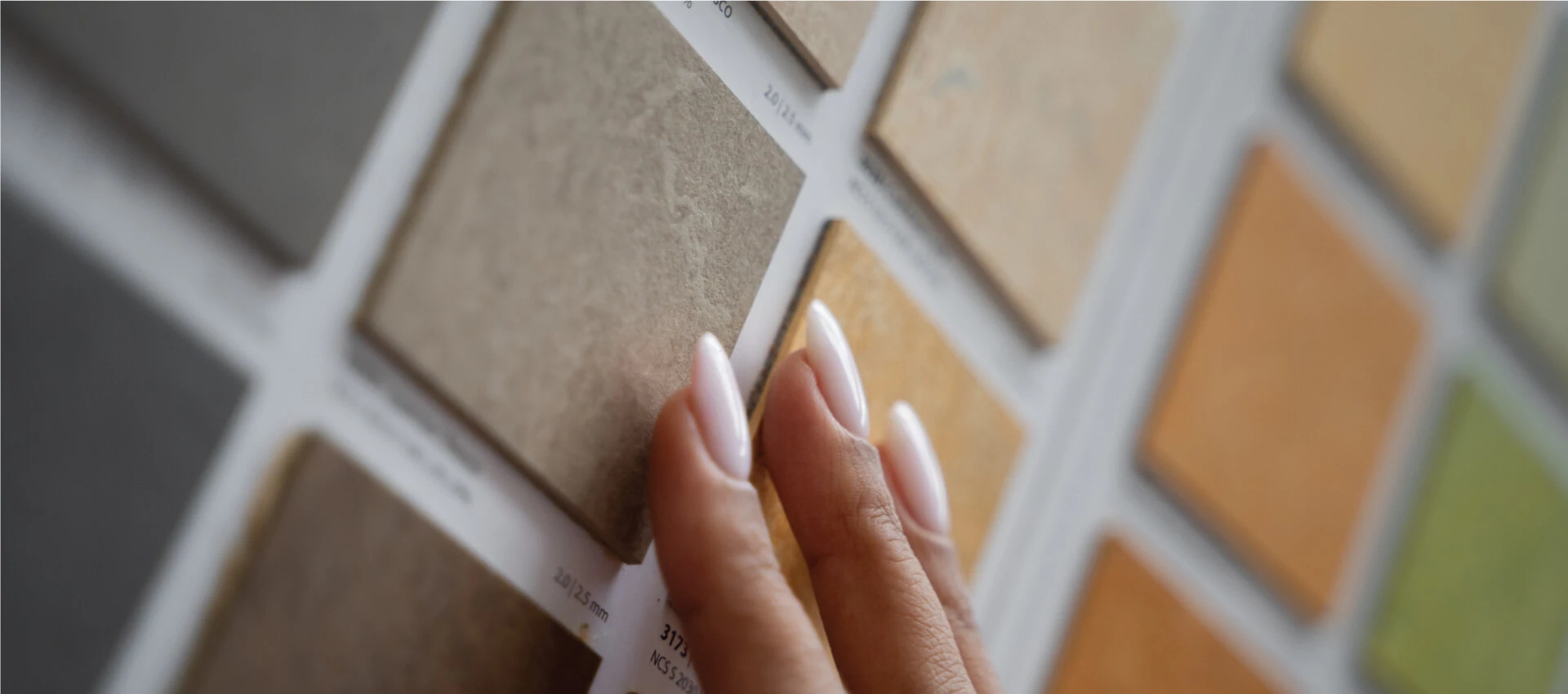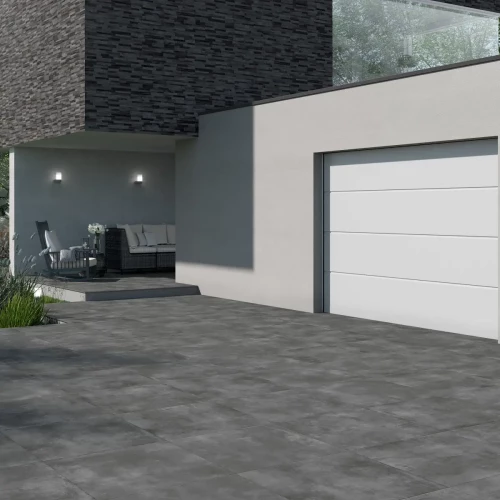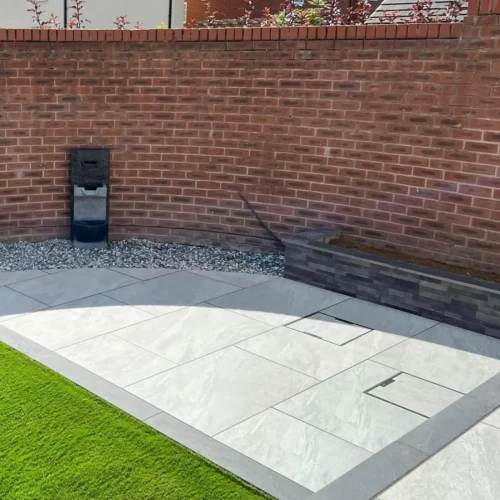Are porcelain tiles less slippery than other materials?
Porcelain tiles with a slip resistance of R11 or higher are less slippery, and therefore safer, than many other materials, especially in wet conditions. Polished natural stones such as smooth limestone, marble, or granite can be very slippery when wet, so buy the porcelain alternatives instead:
Also, concrete tiles which are unsealed or sealed without a coating that specifically adds slip-resistance, can be very slippery and dangerous. Buy concrete effect porcelain instead for the same aesthetics with more benefits.
Finally, wooden flooring, especially that which is glossy or smooth, is extremely slippery when dry and when wet. Again, wood effect porcelain tiles are highly slip-resistant, as well as being more durable and much easier to maintain than natural wood.
What paving should you choose for wet conditions?
The best paving for wet conditions is undoubtedly porcelain paving, particularly when it has a slip resistance of R11 or higher. At porcelain paving direct, all of our tiles are rated with a minimum of an R11 slip rating, making them suitable for all indoor areas and outdoor patios alike, without the risk of slipping.
Check out our bestselling porcelain today.
What paving materials withstand freezing conditions?
There are a few types of paving materials which can withstand freezing conditions and the freeze-thaw cycle. For example, concrete pavers can withstand the freeze-thaw cycle without splitting or cracking because it’s very dense. Also, Some natural stones such as granite and slate are also able to survive this cycle, but they are prone to becoming slippery in frost.
Porcelain on the other hand is able to withstand the freeze-thaw cycle thanks to its immensely low porosity, and it is actually one of the least slippery paving materials out there. Whilst no surface can be entirely slip-proof, especially in icy conditions, porcelain with a slip rating of R11 or above is normally ok, even when icy.
How to maintain porcelain paving slip resistance
The primary way to maintain the slip resistance of porcelain paving is by keeping it clean. The beauty of porcelain is that it’s very easy to clean, usually requiring just a gentle sweep with a soft bristled broom. You can also occasionally use a small amount of water to rinse the porcelain, particularly if it is outdoors.
You can also occasionally use a porcelain cleaner to keep it clean and maintain its slip resistance.
During the winter months, if you intend to regularly use your outdoor porcelain paving or patio, we’d recommend clearing any snow or slush from the surface as soon as possible, to avoid the risk of a surface layer of ice forming.




